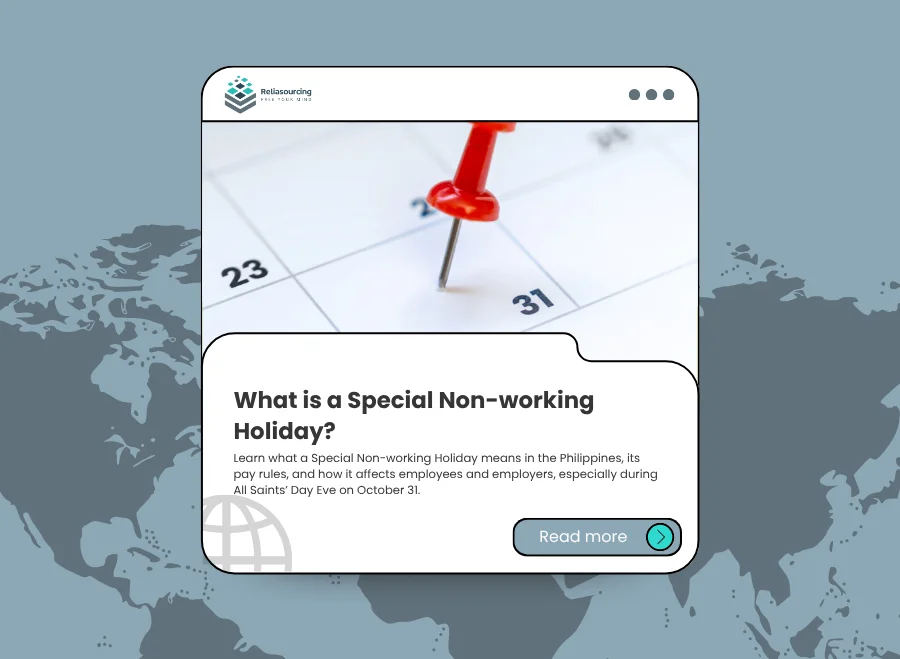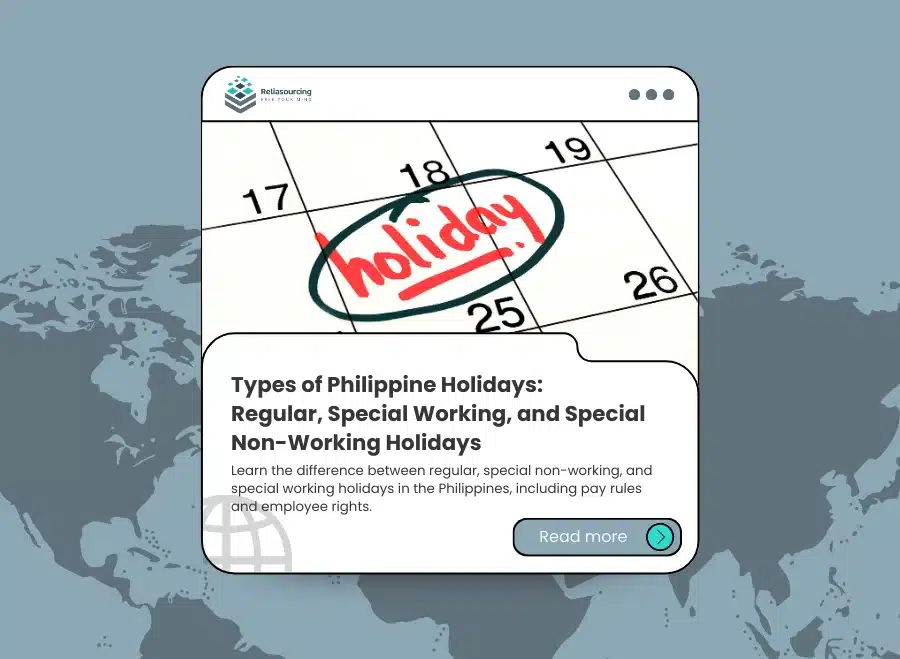October 31 marks All Saints’ Day Eve, which was declared a Special Non-working Holiday across the Philippines. For many Filipinos, it’s a time to prepare for Undas, a deeply rooted cultural observance dedicated to honoring departed loved ones. But beyond the tradition, what exactly does a “Special Non-working Holiday” mean for employees and employers?
Understanding Holiday Classifications
In the Philippines, the Department of Labor and Employment (DOLE) classifies holidays into three categories:
- Regular Holidays
- Special Non-working Holidays
- Special Working Holidays
Each carries distinct pay rules and implications for both workers and businesses.
Special Non-working Holidays: What They Mean
Unlike Regular Holidays, Special Non-working Holidays follow the principle of “no work, no pay.” Employees who choose not to work on these days are generally not entitled to wages, unless company policy or a collective agreement provides otherwise.
However, there are key distinctions based on how employees are paid (upon employer discretion):
- Monthly-paid employees receive pay for special non-working holidays, unless they did not report to work on the day immediately before and/or after the holiday, as their compensation already covers all calendar days of the month (including unworked rest days and holidays).
- Daily-paid employees, on the other hand, are not entitled to holiday pay if they don’t report to work unless company rules say otherwise and/or they worked on the day immediately before and/or after the holiday.
If either type of employee reports to work, they are entitled to an additional 30% of their daily rate. Here’s how it breaks down:
| Holiday Type | Worked | Did Not Work |
| Regular Holiday | 200% of daily wage | 100% of daily wage |
| Special Non-working Holiday | 130% of daily wage | No work, no pay* |
| Special Working Holiday | 100% of daily wage | No work, no pay |
*Some companies voluntarily offer 100% pay even if not required by law.
October 31: All Saints’ Day Eve
All Saints’ Day (November 1) is a Special Non-working Holiday, but in recent years, the day before, October 31, has also been declared under the same classification to give Filipinos more time to travel in preparation for family observances. It’s a nod to the country’s long-standing traditions of honoring family ties and maintaining strong community bonds during Undas.
What Should Employers and Employees Remember?
Complying with pay rules ensures fairness and avoids labor disputes for employers. Understanding the guidelines helps employees effectively plan work schedules and time off.
- If you don’t work on a special non-working holiday, you won’t receive pay, unless company policy says otherwise.
- If you do work, you’re entitled to 130% of your daily wage.
- If you work overtime, the additional pay applies on top of the 130% rate.
Employers in continuously operating industries, such as BPO, healthcare, or transport, should communicate early about schedules and compensation to maintain smooth operations.
Why It Matters
Special Non-working Holidays like All Saints’ Day Eve represent more than just payroll adjustments since they highlight the balance between honoring cultural traditions and maintaining productive work environments. Understanding these distinctions allows both employers and employees to plan responsibly while celebrating meaningfully.
About Reliasourcing
Reliasourcing is a premier outsourcing solutions provider in the Philippines. We deliver tailored services that help businesses across industries achieve operational efficiency and scalability. With a focus on customer experience and innovation, Reliasourcing continues to be a trusted partner in unlocking potential through outsourcing.
Follow us on Facebook, Instagram, LinkedIn, YouTube, and X for more information on the latest trends and insights in outsourcing, the industry, and the Philippines.
Connect with us, or become part of our growing team today!









